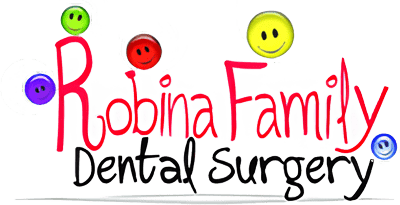Easter is upon us and apart from going to a church service, you’re most probably planning an Easter egg hunt. Stuffing your face with chocolate is an Easter tradition, but is it great for your dental health? We’ve got good news and bad news.

Let’s Start with the Bad News
Milk and white chocolate are really not great for your teeth. That really should come as no surprise. When you eat sugary chocolate, the bacteria in your mouth turns that sugar into acids which eat away at your tooth enamel, causing tooth decay and cavities. This is really any dentist’s beef with chocolates. But it’s not all bad news.

Having Your Chocolate and Eating It Too
The Good Chocolate
New research has come to light discovering a compound in dark chocolate that actually fights against plaque. Isn’t that exciting news? The compound is called CBH and it has an anti-bacterial effect that researchers are predicting will one day be used in mouthwashes and toothpaste. (Can you imagine chocolate toothpaste?)
CBH is a white crystalline powder that has a chemical makeup similar to coffee. It helps harden tooth enamel, making teeth less susceptible to decay. The specific compound has been verified to be effective on animals but it may take a few more years before it’s approved for human use.
To get the most out of this, it’s best to chew on cacao nibs. They can be surprisingly addictive so try not to go over 3-4oz per day. Your second best option is to eat raw chocolate (which is minimally processed and its antioxidants are left intact). Third best option would be organic dark chocolate with less than 6-8g of sugar per serving. Be warned: chocolate is rich in calories so you should modify your calorie intake accordingly.

Chocolate Habits
When eating chocolate, there are several easy tips to keep in mind which can be found in the acronym GROWD:
no Grazing
Consistently grazing on chocolate and lollies throughout the day is terrible for your teeth. Your saliva begins to neutralise the acids formed by the bacteria only after 20 minutes of ingesting, which means that’s 20 minutes that your teeth is exposed to those acids. If you keep eating chocolate, you’ll be exposing your teeth longer and longer to those acids which will result in dental cavities.

Rinse
Rinse your mouth out after you eat chocolate. The good thing is that chocolate dissolves quite quickly. Rinsing your mouth would be doing the same job as your saliva: getting rid of the acids around your teeth. Only after rinsing and waiting for a bit should you do the next step.
Oral hygiene
Obviously, brush your teeth twice a day and floss at the end of every day. Make sure you give it a bit of time between rinsing and brushing. If you brush straight away, you’ll damage your already weakened tooth enamel. Always go to bed with clean teeth to avoid exposing your teeth to acids all night long.

Water
As mentioned before, saliva and water is good for neutralising the acids in your mouth and getting rid of harmful bacteria around your teeth. Drinking water frequently also fights against dehydration which can be caused by an excessive intake of sugar. Try to limit your consumption of fizzy soft drinks as that is just sugar in liquid form and can get into the nooks and crannies of your teeth that aren’t accessible to chocolate.
Dentist
Of course, visit your dentist every six months for your regular check so they can give you a professional clean and check to make sure there aren’t early signs of gum disease or tooth decay. Dental appointments are incredibly important in your oral health regime.

